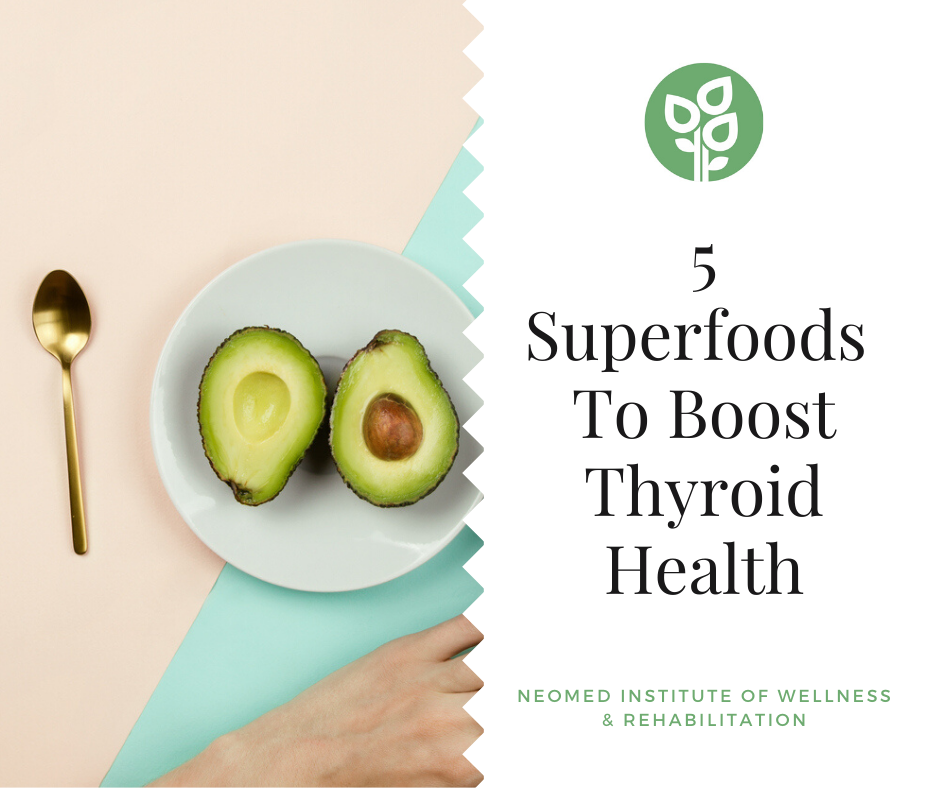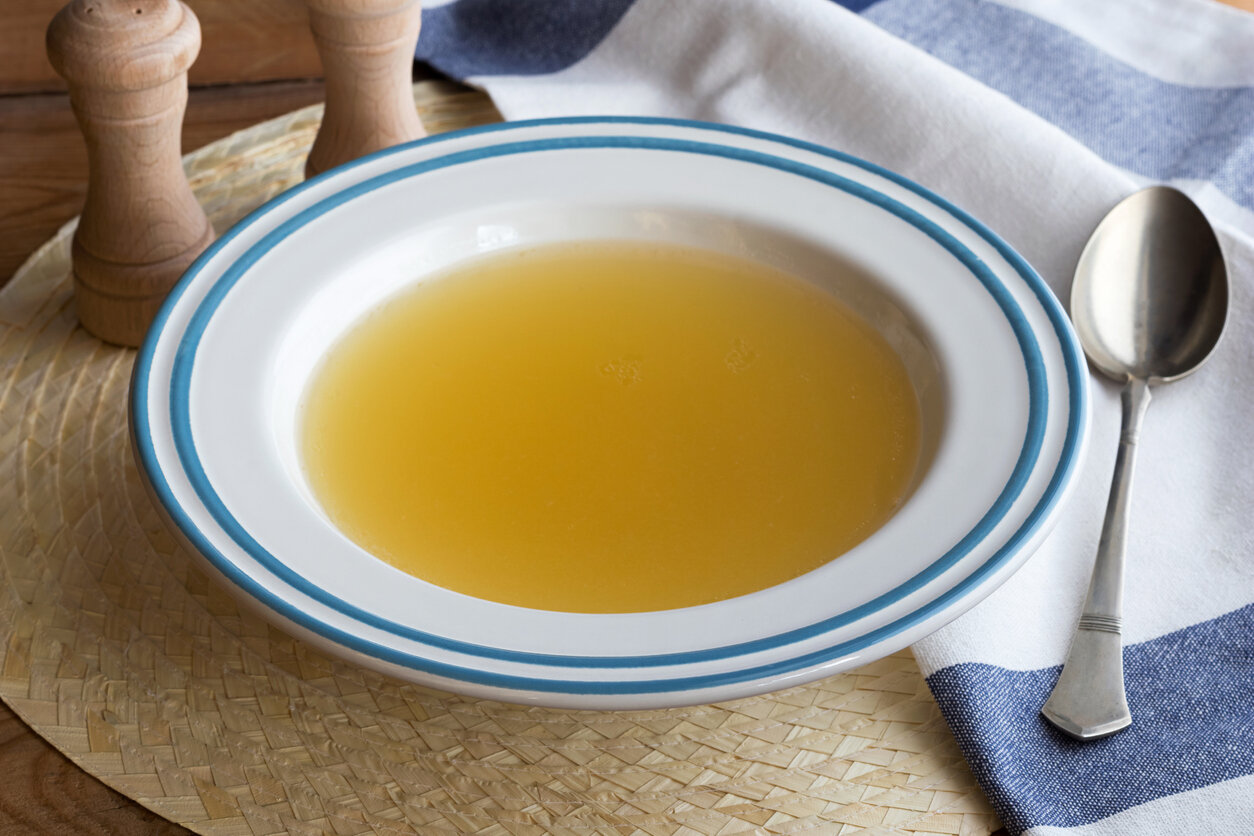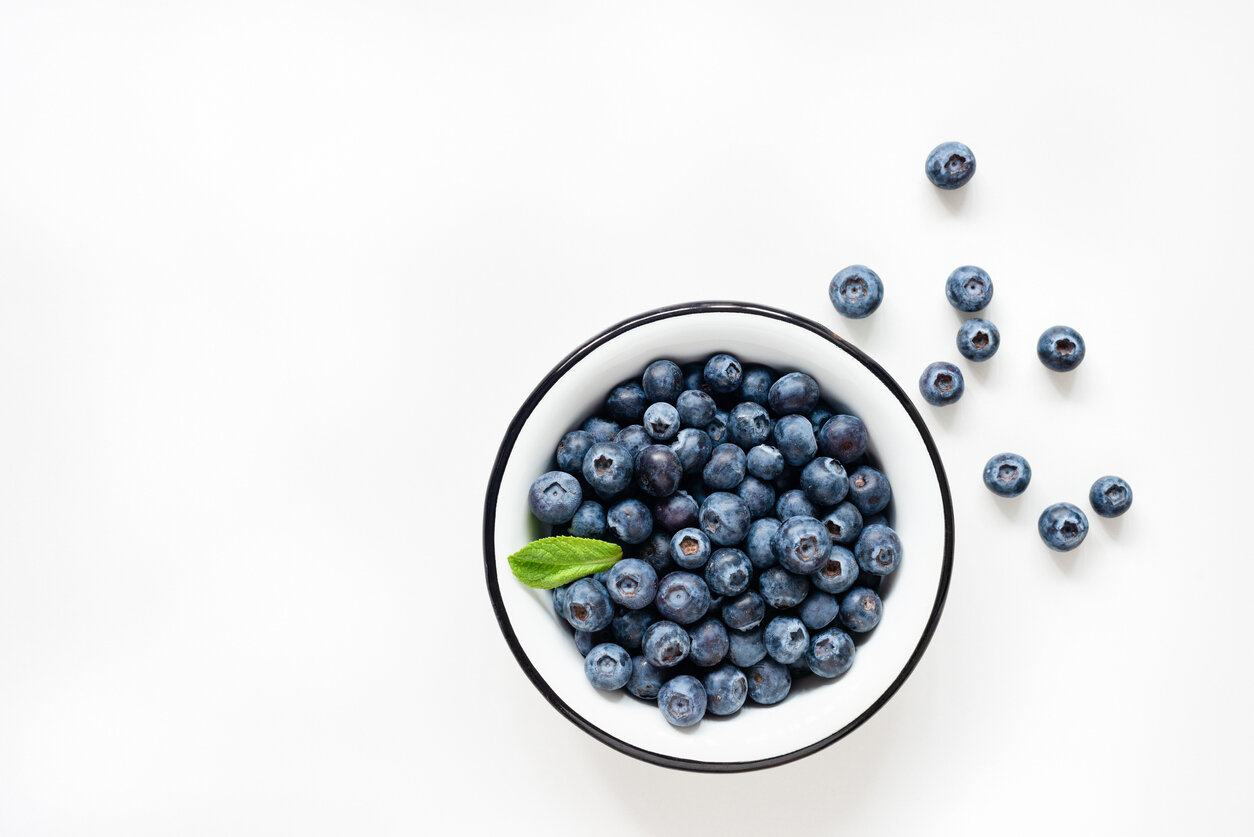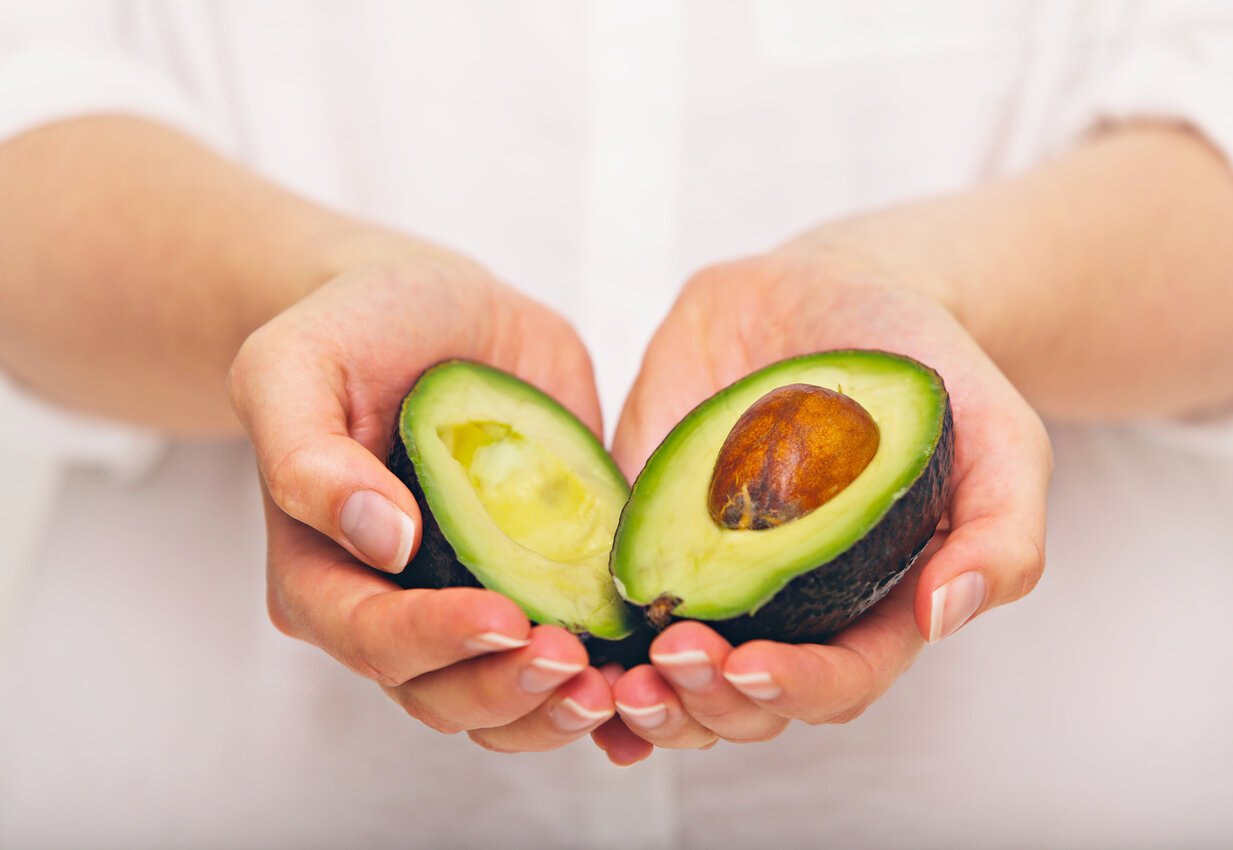5 Superfoods to Boost Thyroid Health

Your choice of foods and overall diet is incredibly important when it comes to your thyroid health. However, with so much conflicting information available, It can be frustrating to figure out what to eat when one is faced with a thyroid condition. To help you out, in this article, I have identified 5 superfoods you can easily incorporate into your daily meal plans to help boost the health of your thyroid and at the same time the overall optimal functioning of your body.

1. Broccoli
Many thyroid patients often avoid cruciferous vegetables because they have been told that they are high in goitrogens. For those who do not know, goitrogens are substances that decrease thyroid function by interfering with the uptake of iodine (a mineral important for creating thyroid hormones). However, research has shown that you would have to eat a large amount of broccoli (like 1 kg per day) to even begin to interfere with thyroid function.
As a nutritionist who specializes in thyroid issues, I believe that a patient has more to lose by avoiding cruciferous vegetables than including them within the diet. This is so because foods like broccoli and cauliflower are high in sulfur. Sulfur is a major component of many detoxification pathways in the liver and is needed to help the body to detoxify. Most thyroid patients that I work with have detoxification issues that need to be addressed so including broccoli into their diet is a great place to start!
If you are still concerned about the goitrogens, lightly steaming cruciferous vegetables destroys them. So, go ahead and enjoy these power-packed and nutrient-dense veggies.
Tina’s Recipe Tip: Sautee some garlic with broccoli in coconut oil and mix it into a coconut cream sauce thickened with arrowroot starch. Pour this sauce over some zucchini noodles and enjoy!

2.Bone Broth
Bone broth made from organic bones and cartilage is highly healing and beneficial for patients with thyroid issue. Bone broth is highly concentrated in the amino acids glycine, arginine, and glutamine, all of which are important to help detoxify the body (and therefore boosting thyroid function).
Glutamine is also great to help heal a leaky gut, a condition most people with autoimmune thyroiditis have. One of the functions of the intestines, other than digestion and absorption, is to protect the blood and the organs from what can exist happily within the gut. With stress, a highly refined diet, and infections or overgrowths, the gut can become leaky allowing bacteria, viruses, undigested proteins, and other foreign objects to escape into the bloodstream. If this happens daily and over time, the immune system is overstimulated trying to clear these foreign objects and if there is a genetic predisposition, chronic illnesses like autoimmune disease can occur.
Consuming foods like bone broth can help to heal the gut and ultimately balance the immune system and decrease or stop the attack on the thyroid gland.
Tina’s Recipe Tip: You can make an entire batch of bone broth, separate it into single containers, and freeze. Every morning, defrost a portion and enjoy a warm cup of bone broth for breakfast.

3. Organic Liver
Back in the day when man depended on hunting to eat, people would devour the organ meats because they knew that they were rich in important nutrients. The muscle of the animal was actually second best.
Organ meats are rich in iron, selenium, zinc, b-vitamins, and fat-soluble vitamins like A, D, E, and K. All of these nutrients are important for producing and for the optimal function of thyroid hormones. Selenium has been found to decrease thyroid antibodies. Both zinc and selenium help to transform thyroxine, the storage form of thyroid hormone, into T3, the active form of thyroid hormone. Vitamin A and zinc help cells become more sensitive to thyroid hormones, and the B-vitamins help the thyroid patient to produce more energy.
Including organic organ meats, two to three times per week is recommended to boost the nutrient density of the diet. If you are vegan, supplementation with all the fore-mentioned vitamins is advisable.
Tina’s Recipe Tip: Does the thought of organ meats not appeal to you? Grind it up into minced meat, mix it with some organic minced beef, and create your favourite hamburger.

4. Blueberries
Eating a diet full of colourful vegetables boosts nutrient-density by increasing the different kinds of phytonutrients found in different coloured veggies. For example, blue/purple/black colours such as Blueberries are high in phytonutrients called anthocyanins and resveratrol. These are very potent antioxidants and help to modulate the immune response and decrease inflammation. From my experience, any thyroid patient with higher thyroid antibodies needs to work on decreasing inflammation in order to decrease their symptoms. Therefore, eating a variety of different colours from plants on a daily basis can help the body to come back into balance.
A plant-rich diet is also the only proven way to change the diversity of the microbiome of the gut. Many times, people with thyroid disease not only have a leaky gut, but they also do not have enough of the good bacteria needed to fight to improve the immune system. Eating plants with soluble fibre such as onions, garlic, chicory root, etc. feeds the good bacteria of the gut and can help to improve symptoms like headaches, anxiety, depression, central pain, fatigue, and weight gain (all of which can be associated with a sluggish thyroid).
Tina’s Recipe Tip: Every day, eat a colourful salad and use different veggies every time. Use green leafy vegetables like spinach, rocket, or lettuce as a base, add something orange (shredded carrots), something red (beetroot), something blue (blueberries), something purple (shredded purple cabbage), and something yellow (yellow squash) and you will automatically have a phytonutrient-dense meal.

5. Avocado
The thyroid needs good fats to function properly. If you do not have a histamine issue, avocados can be a great source of good fat. Avocados are high in omega-3 fatty acids, which help decrease inflammation. They are also a good source of potassium, vitamins C, E, K, b-vitamins, and magnesium.
Many thyroid patients are often omega-3 deficient and do not have a good omega-3 to omega-6 ratio. In general, omega-3 fatty acids are anti-inflammatory and omega-6 fatty acids are inflammatory. However, it is the balance of these two types of fat that dictate the amount of inflammation within the body. Typically, a westernized diet is too high in omega 6 fatty acids and deficient in omega 3 fatty acids. In thyroid patients, this imbalance sets the stage for increased inflammation and decreased thyroid function.
Tina’s Recipe Tip: Cut avocado into your favourite smoothie or use it to make a very tasty chocolate mousse.
It is important to remember that everyone is different and different foods will affect different people in different ways. Therefore, it is important to work with a functional nutritionist to find which diet works best to help heal your thyroid and boost your health.

Article Author: Tina Christoudias Spyrou, Dietician and Functional Medicine Practitioner
To book a consultation to discuss your Thyroid Health and how our clinic can help you please use the form below to contact us:







